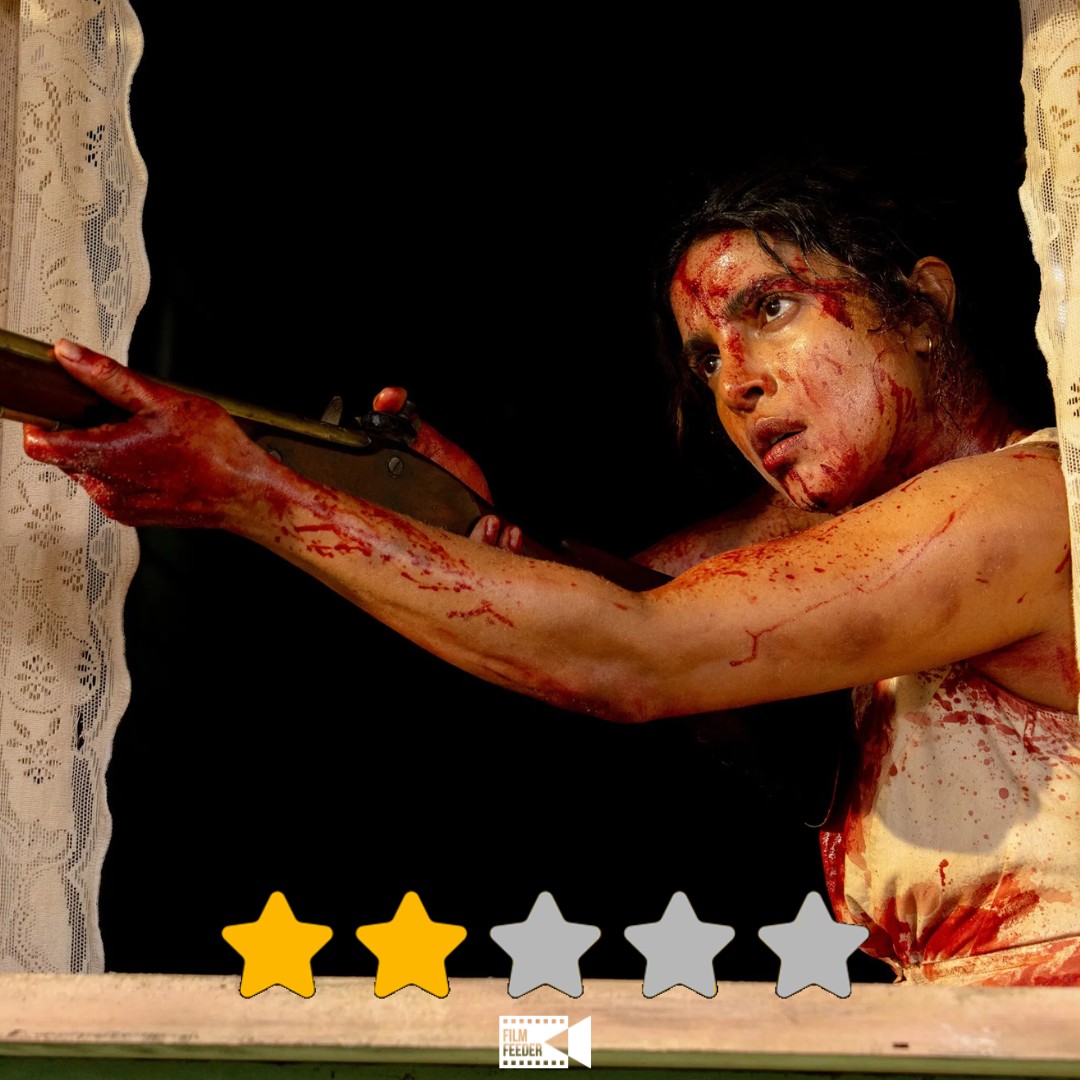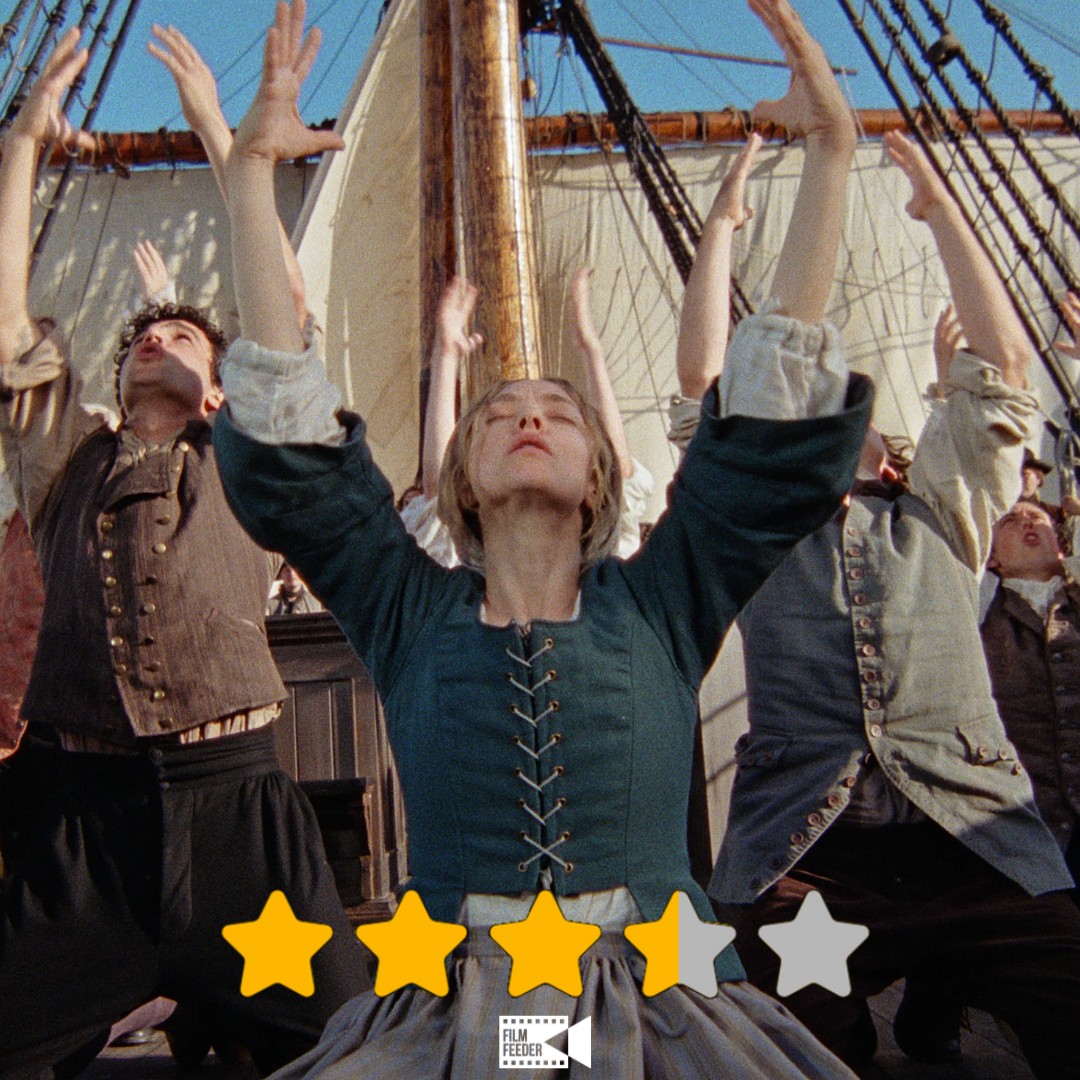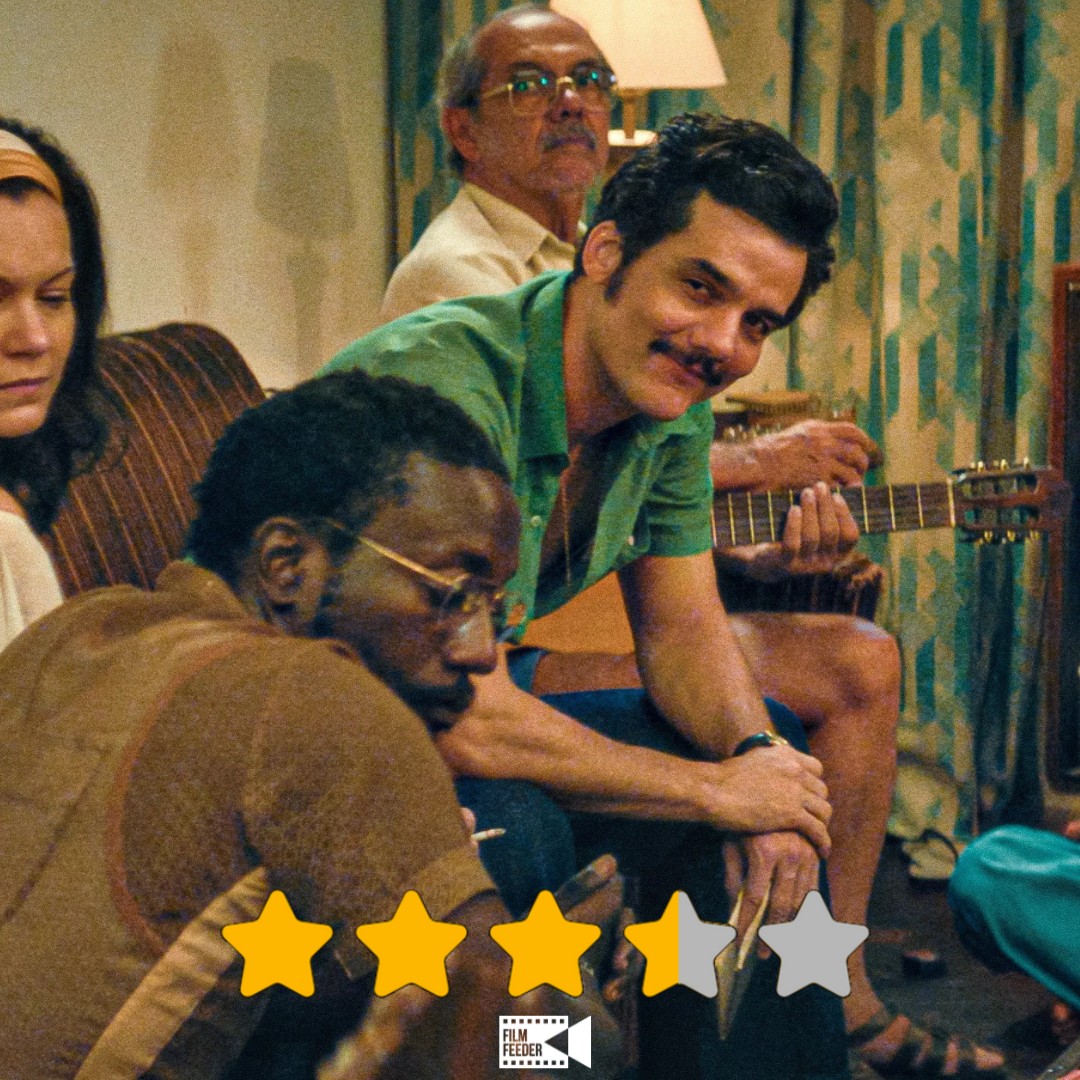
Hedda (dir. Nia DaCosta)
Certificate: 15
Running Time: 107 mins
UK Distributor: Prime Video
UK Release Date: 29 October 2025
WHO’S IN HEDDA?
Tessa Thompson, Imogen Poots, Tom Bateman, Nicholas Pinnock, Nina Hoss, Kathryn Hunter, Finbar Lynch, Mirren Mack, Jamael Westman, Saffron Hocking
WHO’S BEHIND THE CAMERA?
Nia DaCosta (director, writer, producer), Dede Gardner, Jeremy Kleiner, Gabrielle Nadig and Tessa Thompson (producers), Hildur Guðnadóttir (composer), Sean Bobbitt (cinematographer), Jacob Schulsinger (editor)
WHAT’S IT ABOUT?
Hedda Gabler (Thompson) hosts a life-changing party…
WHAT ARE MY THOUGHTS ON HEDDA?
Anton Chekhov may not have written the classic play Hedda Gabler, but the playwright’s most famous stipulation that every introduced plot element is important to the overall story, such as the establishment of a particular firing weapon – better summarised via the more commonly known phrase “Chekhov’s gun” – is perhaps no better used than in Henrik Ibsen’s tragic tale of deception and manipulation. The play, originally set in Oslo during the late 1800s, makes formidable use of Chekhov’s gun as the title character establishes and later uses, directly or otherwise, the all-important plot device as a mere tool in her Machiavellian scheming that ultimately leads to her unravelling.
In her radical reinvention of Ibsen’s play, now simply titled Hedda, writer-director Nia DaCosta has maintained the element of Chekhov’s gun but fires it in unexpected directions, the bullets landing in areas which might not have even crossed Ibsen’s mind when he first wrote it. For one, the cunning titular anti-heroine is here remoulded as a sharper, more devious presence whose ego and petty actions are as much self-destructive as they are just plain old destructive, with these new layers adding to the complexity of the character in addition to that of the plot she is extraordinarily central to, in a film that’s devilishly enjoyable to watch unfold.
The basic outline of the original play remains in place, but with numerous updated features. For one, the film is now set at a fancy manor in the English countryside during the 1950s, which is where newlywed Hedda Tesman (Tessa Thompson), the privileged daughter of the late General Gabler, and her academic husband George (Tom Bateman) are throwing an extravagant party for who turn out to mostly be Hedda’s close circuit of friends. While the evening is but a flex of wealth and sophistication for Hedda, it’s more pressing for George as he’s desperately hoping to impress some of his university’s top professors to secure his own professorship, as well as comfortable finances that will allow the couple to keep affording their new home and lifestyle. His biggest competition is Eileen Lovborg (Nina Hoss), a fellow academic who also happens to be a former lover of Hedda’s, and who has attended the party despite her recent recovery from alcoholism as well as the concern of her new partner Thea (Imogen Poots), Hedda’s former schoolmate with whom Eileen has penned a provocative and potentially game-changing new manuscript. Throughout the course of the party, Hedda puts into motion a series of events that will weaken her adversaries, embolden the few whom she is closest to, and most of all amuse none more than herself.
DaCosta’s film is the rare stage-to-screen adaptation where the theatrical roots hardly show in the final product. While the singular location and dialogue-heavy plotting remain, albeit in a remixed format that puts Ibsen’s original plotting under a whole new light, it rarely feels as though this particular retelling was meant for anywhere other than the screen, as the filmmaker manages to create from her limited locations and principal characters a cinematic atmosphere that’s dark and intense as well as giddily playful whenever it needs to be. Even the traditionally theatrical placement of Chekhov’s gun is given a robust pictorial treatment, with said weapon almost framed as a character itself given how lusciously it is framed by cinematographer Sean Bobbitt and how in certain pivotal scenes it makes a striking entrance (though perhaps not as much as Nina Hoss, whose physical introduction here recalls the heyday of screen icons like Joan Crawford and Rita Hayworth).
There is also a delicious slow-burn energy in how DaCosta lays out her drama-filled evening, all as a jazzier-than-usual score by Hildur Guðnadóttir plays whilst Hedda’s increasingly drunken guests come within inches of turning things into the opening act of Babylon, which the filmmaker enjoys stretching out as backs are stabbed (in the figurative sense), spouses are cheated upon, and priceless décor is shattered into tiny pieces. At the core of it all is a tremendous lead turn by Tessa Thompson, whose prim and proper presentation amusingly contrasts with her cruel and calculating conations, which involve encouraging raucous behaviour among her guests, including those who may be trying to remain sober for their own health, to shift things more in her favour by the party’s eventual end. Thompson’s magnetism fills the renowned role of Hedda née Gabler with profound layers, for while she clearly revels in sowing discontent she is also acting from a place of deep emotional insecurity, hurt by the betrayal of former loves and jealous of their own supposed happiness which she herself, no matter how high her status may now be, will never achieve.
If DaCosta makes any missteps, it’s with her initial wobbliness in setting up certain characters and sub-plots, which all come into play at once and make it hard to tell which ones we’re meant to stick closely to for the rest of the movie. Once the party gets into full swing, however, DaCosta’s Hedda settles into being a sly and enjoyably catty adaptation that recontextualises the central themes and revelations in the original Ibsen play within interesting new subtexts that feel very of this moment. The filmmaker, along with her sublime lead actor, gives the play a brand-new jolt of life that viewers will comfortably enjoy, regardless of whether or not they’ve familiarised themselves with Hedda Gabler beforehand, or even the play’s most flamboyant use of Chekhov’s gun.
SO, TO SUM UP…
Hedda is a slyly enjoyable reinvention of the classic Henrik Ibsen play that sees filmmaker Nia DaCosta remove most of its theatrical roots to present something impressively cinematic, while a magnetic lead turn by Tessa Thompson adds fresh emotional layers to the complex anti-heroine.














0 Comments